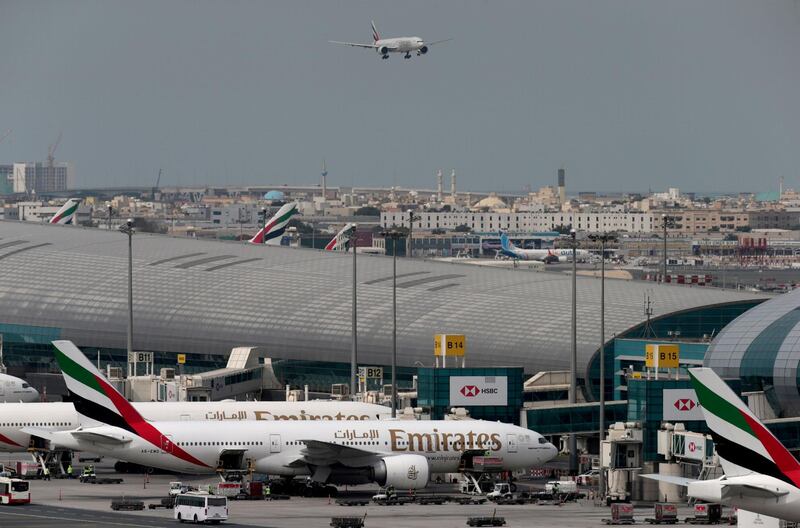The Dubai government pledged financial support for Emirates to help the world's largest long-haul airline cope with the impact from the coronavirus pandemic, which hit the global aviation industry and triggered pleas from carriers around the world for state aid.
The government of Dubai will inject equity into the state-owned company given its strategic importance to the economy and its role in transforming the emirate into a global travel hub, according to a statement on Tuesday from the Dubai Government Media office.
"Dubai is fully committed to supporting Emirates airlines in the current critical period," Sheikh Hamdan bin Mohammed bin Rashid Al Maktoum, Crown Prince of Dubai and Chairman of The Executive Council of Dubai, said. "As a shareholder of Emirates airlines, the Government of Dubai will inject equity into the company, considering its strategic importance to the Dubai and UAE economy and the airline’s key role in positioning Dubai as a major international aviation hub."
The government pledge to help the airline surmount the fallout from the coronavirus pandemic comes after the UAE suspended passenger flights for a two-week period starting March 25 to limit the spread of the virus.
Emirates, which relies on funneling long-haul traffic through its Dubai hub, grounded most of its passenger fleet as countries shut their borders and temporarily reduced employee wages by 25 to 50 per cent as part of efforts to preserve cash.
The amount of state funding Emirates would receive isn't clear yet, but further details will be announced at a later stage, Sheikh Hamdan said.
The airline’s growth helped transform the emirate into a mega-hub for international travel as part of the UAE’s broader plans to diversify away from oil.
The carrier's base, Dubai International Airport, has become the world’s busiest hub for international travel for six consecutive years, after grabbing the title from London Heathrow.
Emirates Group, which includes the airline unit and ground handling services provider Dnata, is a major state asset that provides dividends for its government shareholder and employs more than 105,000 people.
Airlines around the world have been hammered by the deadly virus outbreak that has crippled international travel as governments closed borders to contain the spread of Covid-19. Tighter travel bans and the dramatic collapse of air travel demand forced operators to ground jets and axe jobs in efforts to preserve cash.
The International Air Transport Association, an industry body representing 290 airlines worldwide, estimates carriers will lose $252 billion in passenger revenue in 2020 as air travel demand plunges 38 per cent.
Some carriers such as as British budget EasyJet have grounded their entire fleet, highlighting the tremendous pressure on airlines, who are urgently calling on governments for aid to survive the crisis.
US carriers are set to receive about $60 billion (Dh220bn) of aid after President Donald Trump approved a $2 trillion stimulus plan on Friday.
Today, we renew our commitment to support a success story that started in the mid-1980s to reach its goal of sitting on the throne of global aviation. The Government of Dubai is committed to fully supporting @Emirates at this critical time & will inject equity into the company. pic.twitter.com/3cabmUDOVD
— Hamdan bin Mohammed (@HamdanMohammed) March 31, 2020








